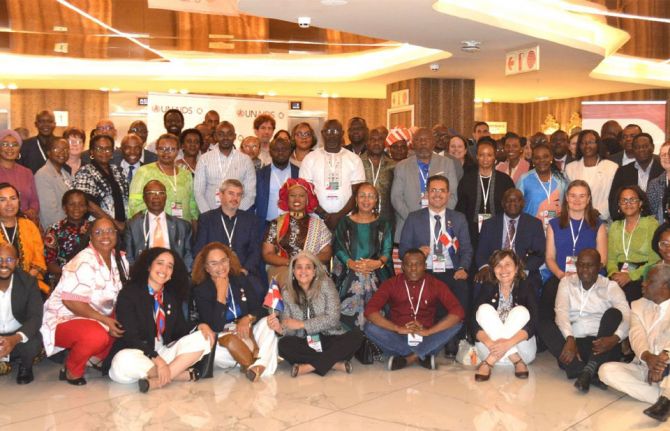
Feature Story
Jamaica takes measures to ensure the sustainability of its response to HIV
07 October 2013
07 October 2013 07 October 2013
Hard-won gains against the HIV epidemic in Jamaica could be at stake due to national budgetary constraints and the country’s increasing HIV treatment costs, a study shows. As a result, the Jamaican government has taken steps to enhance the planning and efficiency of its national AIDS programme.
“Since 2004, with the introduction of antiretroviral treatment, AIDS-related deaths in Jamaica have dropped by 41% and mother-to-child transmission of HIV has fallen from 25% in 2004 to below 5% in 2011,” said Health Minister, Fenton Ferguson. “Jamaica is on the way to success and we can’t have it derailed.”
With support from the World Bank and UNAIDS, the country conducted a landmark study on the financial sustainability of its AIDS response. The study projected that the annual cost of Jamaica’s HIV programme may double by 2030. It also reported that Jamaica’s ability to increase domestic spending for HIV is limited by its high levels of public debt—the country is classified by the World Bank as an upper middle income country, however, the island has a debt-to-GDP ratio of 140%. The country’s agreements with major partners including the Global Fund to Fight AIDS, Tuberculosis and Malaria, the World Bank and the United States Government, are set to expire over the next two years.
Since 2004, with the introduction of antiretroviral treatment, AIDS-related deaths in Jamaica have dropped by 41% and mother-to-child transmission of HIV has fallen from 25% in 2004 to below 5% in 2011. Jamaica is on the way to success and we can’t have it derailed.
Fenton Ferguson, Health Minister of Jamaica
According to Dr Ferguson the work has already begun. The UNAIDS investment approach was used to develop strategies to help the country’s HIV response survive and succeed.
For example, Jamaica has re-focussed its National Strategic Plan, with a strong emphasis on the needs of key populations at higher risk of infection, including men who have sex with men, sex workers and people who use drugs. It has also announced the establishment of an authority which joins the Family Planning Board with parts of the HIV Programme to lower administrative costs. The country is also exploring regional opportunities to lower the prices of antiretroviral medicines.
UNAIDS Country Coordinator, Dr Pierre Somse, commended the Ministry of Health and the Ministry of Planning and Finance for jointly addressing the financial sustainability issues surrounding the HIV response. “HIV is being dealt with as a development issue by the Government of Jamaica within the context of the country’s 2030 national development plan,” said Dr Somse. “The HIV response continues to enjoy the highest level of political commitment across political parties,” he added.
In the 2013/2014 fiscal year, the Government increased its share of HIV spending, however to facilitate the implementation of the new strategies the Health Minister has called for “a more gradual transition from international funding”.



